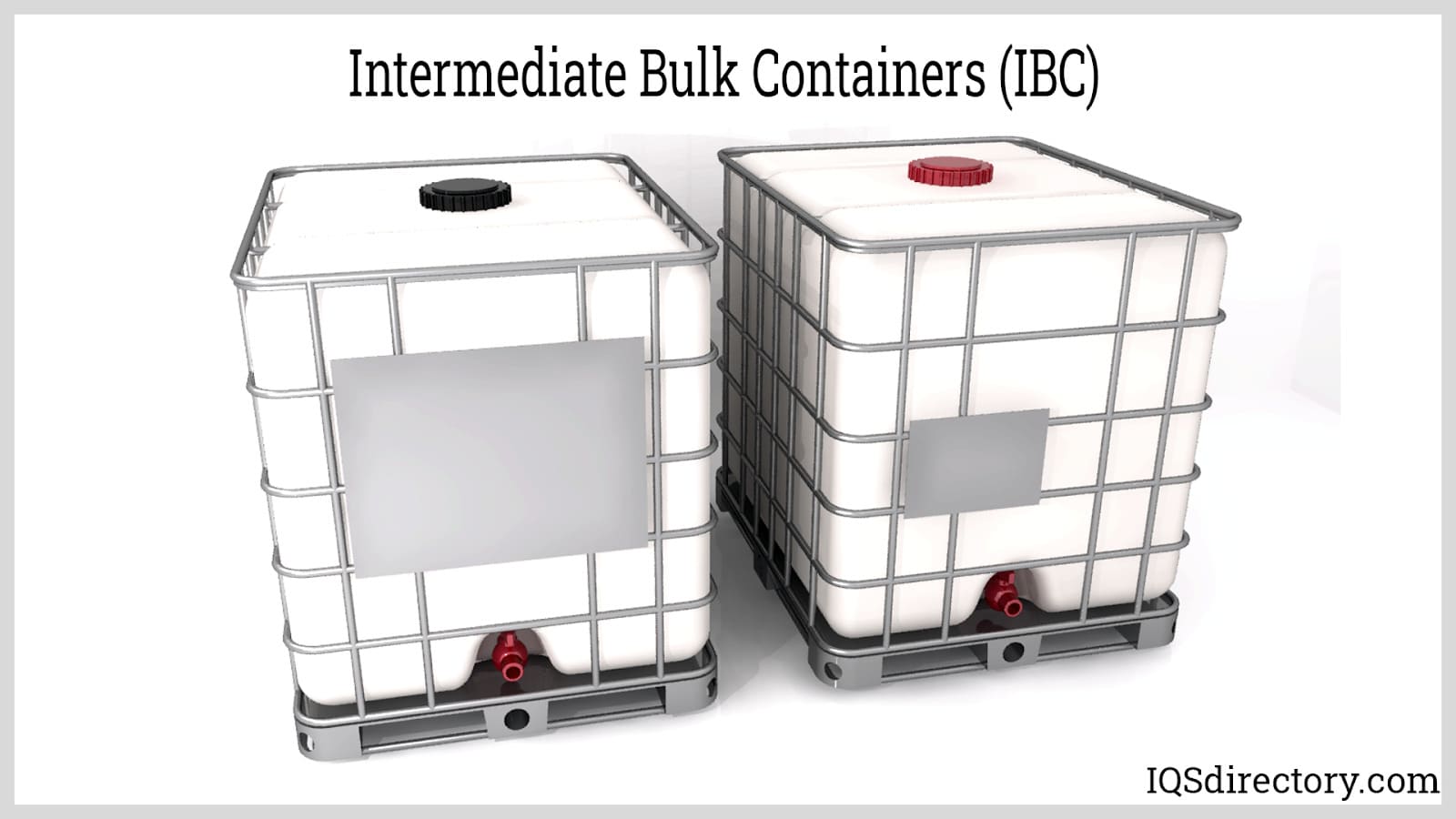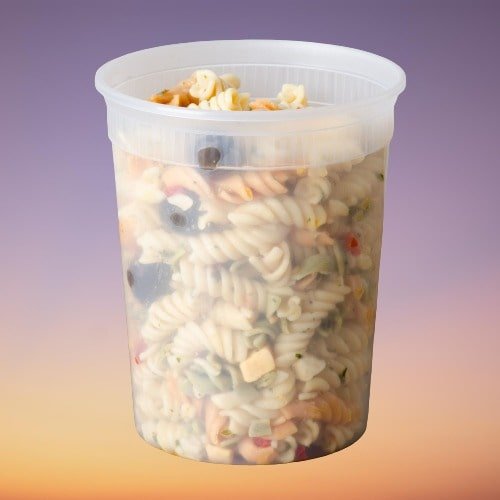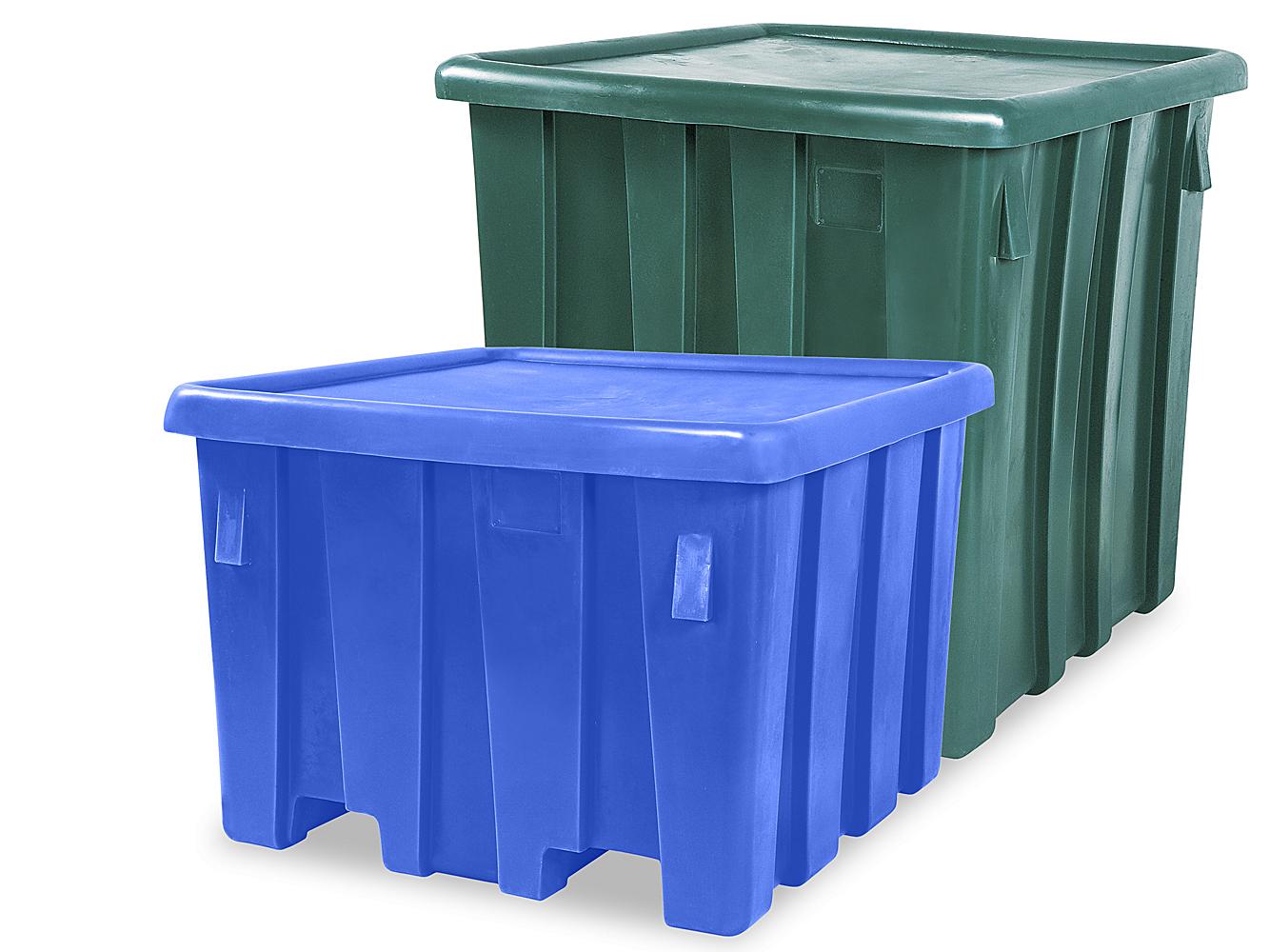Why businesses trust Bulk Plastic Containers for long-term storage
Wiki Article
A Comprehensive Guide to the Various Sorts Of Bulk Plastic Containers Available Today
Bulk plastic containers play a vital function in various sectors, offering remedies for storage and transportation. Their varied types satisfy various requirements, from inflexible alternatives for solid products to flexible containers accommodating numerous forms. Each kind presents distinctive benefits, making it important to comprehend their applications and functions. As sectors advance, so do the demands for effective container options. What factors should one consider when selecting the right mass container?Overview of Mass Plastic Containers

Sorts Of Bulk Plastic Containers
Bulk plastic containers been available in various forms, each matched to particular applications. Stiff mass containers, flexible bulk containers, and intermediate bulk containers represent the key categories, each offering one-of-a-kind advantages. Recognizing these kinds is important for selecting the ideal container for delivering and saving materials.
Inflexible Bulk Containers
Stiff mass containers are critical for reliable storage space and transport of various products across markets. These containers are generally built from sturdy plastics, permitting them to endure extreme handling and ecological conditions. They are available in different sizes and shapes, including drums, totes, and containers, making them suitable for storing whatever from granular substances to fluids. Inflexible containers often feature reinforced walls and safe covers, making certain the materials stay safeguarded during transportation. Their stackable style makes the most of storage space, making them optimal for storehouses and making centers. In addition, lots of inflexible mass containers are recyclable and recyclable, contributing to sustainability efforts. In general, their robustness and versatility make inflexible mass containers an essential component in supply chain procedures.Versatile Bulk Containers
Flexible bulk containers, often described as versatile intermediate bulk containers (FIBCs), act as a flexible solution for keeping a range and transferring of dry materials. These containers are typically made from woven polypropylene and are created to be light-weight yet strong, allowing for reliable handling and piling. Their versatility enables them to suit different sizes and shapes, making them ideal for items varying from grains to chemicals. FIBCs can be outfitted with attributes such as spouts for very easy filling and discharge, along with protective layers for improved toughness. Additionally, they are reusable and recyclable, adding to sustainable methods in sectors like farming, food processing, and construction. Overall, adaptable mass containers use a cost-efficient and reliable option for bulk material management.Intermediate Bulk Containers
Intermediate bulk containers (IBCs) are essential for the efficient transport and storage of fluids and granular materials throughout numerous sectors. These containers usually have a capability varying from 275 to 330 gallons and are made for easy dealing with and stacking. Made from long lasting products like high-density polyethylene or steel, IBCs supply superb defense against contamination and environmental aspects. Their style consists of attributes such as an integrated pallet for forklift access and a removable top for simple dental filling and cleansing. IBCs are extensively used in chemical, food, and pharmaceutical markets, ensuring conformity with safety and security laws. Their convenience and reusability make them an economical remedy for mass storage space and transportation, contributing to supply chain performance and sustainability.Features and Benefits of Mass Plastic Containers
Mass plastic containers are important tools in various markets, supplying a combination of durability and functionality. These containers are created from high-grade materials, making them immune to influences, chemicals, and ecological elements. This robustness guarantees product safety and security during storage and transportation.In addition, bulk plastic containers are lightweight, promoting convenience of minimizing and handling shipping expenses. Their stackable layout maximizes storage space performance, allowing for maximized storehouse room. Lots of designs include protected lids or closures, offering a closed seal that prevents and preserves contents contamination.
Additionally, bulk plastic containers are recyclable and usually multiple-use, adding to lasting techniques. Their versatility permits a wide variety of applications, from food storage to commercial usage, enhancing their worth across markets. Businesses take advantage of the long life-span and reduced maintenance demands of these containers, making them a cost-effective service for both temporary and lasting needs.
Industries That Utilize Bulk Plastic Containers
Different markets take advantage of using bulk plastic containers, each leveraging their unique properties check this for specific applications. The food and beverage industry relies upon these containers for risk-free storage and transport of products, while the chemical production industry uses them for taking care of dangerous products. Furthermore, the pharmaceutical circulation needs highlight the relevance of toughness and sanitation in product packaging services.Food and Drink Sector
As the need for reliable and safe storage options remains to climb, the food and drink sector significantly relies upon mass plastic containers for their operational needs. These containers provide robust, lightweight, and flexible options for storing ingredients, finished items, and waste materials. Made from food-grade materials, they assure conformity with health and wellness requirements. Various styles, such as stackable bins and tote boxes, optimize room throughout transportation and storage, improving logistical effectiveness. Additionally, the openness of some bulk containers allows for simple supply monitoring, reducing the danger of perishing. With the market's concentrate on sustainability, many makers are currently providing recyclable and recyclable options, straightening with green techniques while satisfying the high needs of food security and hygiene.
Chemical Production Industry
The chemical manufacturing industry counts greatly on bulk plastic containers for the efficient and secure storage of raw products, intermediates, and ended up products. These containers are made to hold up against various chemicals, making certain that dangerous products do not leakage or deteriorate the container itself. Usual kinds include high-density polyethylene (HDPE) and polypropylene containers, which use outstanding chemical resistance and resilience. Their lightweight nature and stackable layout facilitate transport and storage space, enhancing room in producing centers. Furthermore, several mass plastic containers feature features such as tamper-evident seals and easy-to-read labeling, improving safety and conformity with industry guidelines. In general, mass plastic containers are integral to the chemical production procedure, providing reliable options for handling diverse materials.Pharmaceutical Circulation Needs
Drug distribution relies upon bulk plastic containers to fulfill strict safety and security and regulatory needs. These containers are necessary for transferring and saving a variety of pharmaceutical items, consisting of energetic pharmaceutical active ingredients (APIs) and ended up medications. Their style warranties defense versus light, contamination, and moisture, maintaining the integrity of sensitive materials. Additionally, bulk plastic containers are compliant with industry criteria such as Excellent Production Practices (GMP) and are usually made from products that are FDA-approved. The use of these containers improves efficiency in the supply chain, enabling safe, large-scale circulation while reducing waste. Business in the pharmaceutical industry focus on making use of durable, leak-proof, and tamper-evident containers to ensure item safety and security and high quality throughout the logistics procedure.Considerations for Picking the Right Container
When picking the appropriate bulk plastic container, different elements must be very carefully evaluated to ensure excellent capability and safety. The nature of the materials to be kept is vital; compatibility with the container's product can influence integrity and safety. bulk plastic containers for sale. In addition, the container's dimension and shape should align with the storage and transportation needs, guaranteeing reliable space usageTons ability is one more essential website here consideration, as it must fit the weight of materials without danger of damages or failure. The layout attributes, such as venting or covers, can affect usability and gain access to. Conformity with market policies is important, specifically in sectors like drugs, where security requirements are stringent.
Ultimately, the expected life-span and sturdiness of the container ought to be evaluated to verify it fulfills the functional needs without regular substitute. By evaluating these elements, one can choose one of the most ideal mass plastic container for details applications.
Ecological Influence and Sustainability
As companies progressively prioritize sustainability, the environmental effect of bulk plastic containers has actually come under analysis. These containers, often made from materials such as polyethylene or polypropylene, contribute significantly to plastic waste if not handled correctly. Their production involves the usage of fossil gas, which can bring about raised greenhouse gas exhausts. However, developments in recycling innovation and the advancement of naturally degradable choices are aiding to mitigate these concerns.Many manufacturers are taking on methods that highlight the use of recycled products, therefore minimizing the need for virgin plastics. The longevity of mass plastic containers additionally plays a duty; they are made to be recycled several times, which can reduce their overall environmental impact when compared to single-use alternatives. Inevitably, the market deals with the obstacle of balancing functionality with ecological responsibility, making sustainable techniques essential for the future of mass plastic containers.
Finest Practices for Storage and Transportation
Reliable storage and transportation of mass plastic containers considerably influence both functional performance and sustainability. To optimize area, companies ought to stack containers securely, guaranteeing stability and preventing damages. Proper labeling is vital for very easy recognition, which streamlines retrieval procedures. Furthermore, keeping a tidy and well organized storage space area lowers the danger of contamination and improves security.For transport, picking the appropriate automobile is vital; containers ought to be safeguarded to stay clear of shifting during transportation. Firms should also take into consideration making use of pallets to help with less complicated loading and dumping. Regular evaluations of containers for deterioration can protect against pricey substitutes.
Temperature level control is another vital facet, as severe problems can endanger the honesty of the plastic. Ultimately, training employees on ideal techniques for handling and transportation guarantees conformity and advertises a culture of safety. By applying these best practices, services can enhance their operational efficiency while contributing to environmental sustainability.
Often Asked Concerns
Exactly how Do I Clean Bulk Plastic Containers Successfully?
To clean bulk plastic containers successfully, one must wash them with cozy water, use a light cleaning agent and scrub with a soft brush. Wash thoroughly, after that enable to air completely dry entirely prior to storage or reuse.What Is the Lifespan of Mass Plastic Containers?
The lifespan of mass plastic containers commonly varies from 5 to 10 years, depending on the product, use, and environmental conditions. Proper upkeep and storage space can greatly extend their use and durability with time.Can Mass Plastic Containers Be Personalized?

Do Mass Plastic Containers Have Warranty Options?

Exist Rules for Using Bulk Plastic Containers?
Yes, guidelines exist for utilizing mass plastic containers, largely concentrated on safety, environmental influence, and material conformity. These policies ensure that containers meet market standards and are appropriate for transporting numerous materials securely and effectively.Inflexible mass containers, adaptable bulk containers, and intermediate bulk containers stand Find Out More for the main classifications, each offering special advantages. Versatile bulk containers, commonly referred to as versatile intermediate bulk containers (FIBCs), serve as a versatile solution for saving a range and delivering of completely dry products. The chemical manufacturing industry relies greatly on mass plastic containers for the reliable and secure storage of raw materials, intermediates, and ended up items. plastic bulk containers. These containers are developed to endure various chemicals, making certain that unsafe materials do not leakage or deteriorate the container itself. In addition, bulk plastic containers are certified with industry requirements such as Excellent Manufacturing Practices (GMP) and are usually made from materials that are FDA-approved
Report this wiki page